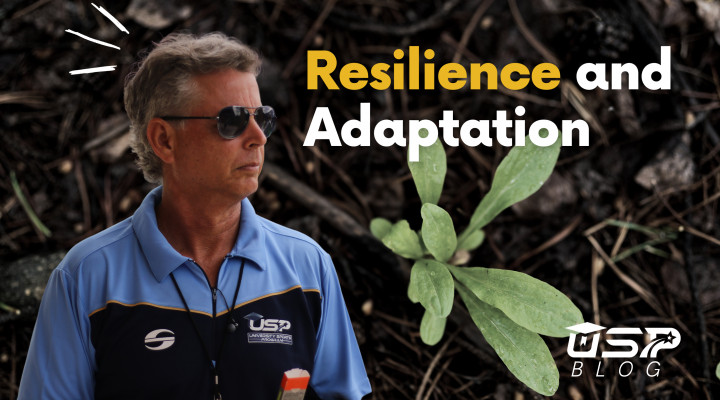Resilience and Adaptation
For the past 12 months, these two words have taken a whole new dimension for most of the things that we do in our daily lives.

Resilience: Is the capacity to recover quickly from difficulties; toughness.
Adaptation: A change or the process of change by which an organism or species becomes better suited to its environment.
Changes such as working from home, online education, virtual interaction, crowd-less sporting events have become a new reality that we have to cope with. So, being resilient and adapting is no longer a choice, it’s a must if we wish to succeed.
For college recruiting is no different, and at USP our student-athletes can overcome the many challenges that most junior players are encountering, such as lack of competition and travel, limited exposure and face-to-face interaction with coaches, no official college visits, canceled SAT/ACT testing, highly competed team spots and scholarship offers just to mention a few. We teach our staff and students the importance of being resilient and adapting to this new reality.
Being resilient for a junior tennis player means overcoming all adversities, remain confident, and focus on the present. If you lose a match, get injured, have to isolate, or receive a bad test score, you wake up the next day ready to do it all over again. You develop that mindset, where you are willing and open to new experiences, opportunities, training, and techniques. For example, if you are not getting responses from coaches, you change your approach, adjust your college list or find more effective ways to communicate. You maintain a sincere and consistent relationship with each coach.
You spend more time researching your schools and preparing for when the moment comes to meet and play in front of the coach. And believe me, it will come!
As tennis players, we have to adapt to changes all the time, such as our opponent’s game, court surface, balls, altitude, change of schedule, etc. As college tennis continues to extend the dead period where D1 coaches cannot interact face to face nor leave campus to recruit, what are you going to do? With the “Eligibility Extension” approved for all sports and record-breaking college players in the transfer portal, how do you adapt? With limited tournaments and maybe your UTR lowering, how do you get a coach interested? Our college recruiting advisors have to overcome all of this to place our students. How? By great planning and strategizing, working very closely with the families, using all resources to impress coaches, preparing better our students, emphasizing the importance of academics, researching new colleges, and continue to build trust with all coaches. And we teach not to worry about what has not yet happened. One day at a time.
I cannot be happier with our results and to know that each one of our students is going to the best possible college where they will have the time of their lives and create opportunities for their future. I thank them for their trust in USP.
Thomas Anderson
CEO & Founder
University Sports Program (USP)
Categories
-
March 19, 2024
5 Maneras en que USP Apoya a Estudiantes: Más Allá de una Universidad, la Universidad de tus sueños.
-
March 19, 2024
5 Ways USP Supports Students: Beyond a University, a Dream University
-
March 19, 2024
Maximizing Your Potential with USP: A Guide for Students
-
March 19, 2024
Maximizando Tu Potencial con USP: Una Guía para Estudiantes
-
March 12, 2024
USP Podcast Series: University Scholar Program 🚀🎓
-
March 11, 2024
USP The Game: Carlos Oñate vs Oscar Miranda